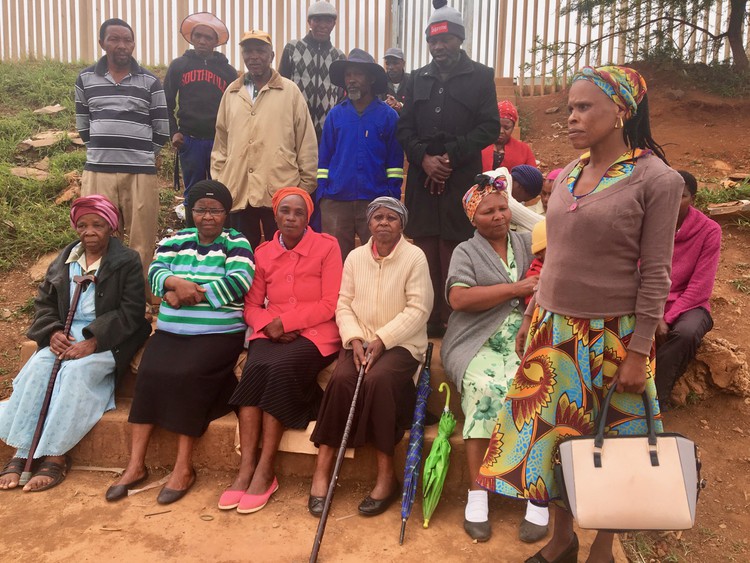“I’m 83 years old and I will die homeless”
Elderly residents of Pietermaritzburg are renting RDP houses they had hoped to own
“I’m 83 years old and I will die homeless,” says Regina [not her real name] who has been renting an RDP house for ten years. Regina is one of several elderly residents of France in Pietermaritzburg who are renting RDP homes while waiting for houses.
She pays R500 rent from her monthly pension grant of R1,600. Regina says sometimes she misses the rent because of other expenses. Her “landlady” has warned her never to tell anyone that she is renting.
“I’m old and I cannot compete with the youngsters in the ward. We have young girls owning four or five RDP houses while we are renting. What they do is collect rent,” said Regina.
Regina applied for a house in 1996 and she has been waiting ever since. She lived with her daughter, but when her daughter died in 2007, her grandchildren no longer wanted her to stay with them. She was offered a one-room RDP house to rent by a young woman who comes to collect the rent at night, she says.
“At 83 I will die like a skhotheni (thug). I didn’t know that at my age I would be paying rent. When I die, my corpse will be taken straight from the mortuary to the graveyard. There won’t be any night vigil,” she says. “Our ANC government has failed us, they have no shame. They must forget about my vote.”
In 1999 a housing project set to benefit 4,500 families ended in shambles in France. People occupied other people’s houses; some of them are collecting the rent from the elderly.
According to Mduduzi Hlongwane, who is on the ward housing committee, most of the people who applied for houses are still waiting. He said some residents had occupied the houses without documents and claimed them. Some houses were half completed without doors or windows, he said.
“We do not know how it happened, but we have people owning four or five houses. Some of the houses were sold to people at low prices. I also applied for a house but I was told my house is now occupied by someone else. I’m staying in someone else’s house. When I got in there were no doors or windows and the floor was bare. Because I needed a place to stay with my family I moved in,” he said.
Sbongile Shabalala, 54, lives with nine children and grandchildren. She lost her job as a crèche assistant where she was earning R400 a month. She rents for R500 and her landlord is increasing the rent in December, she says.
“I am among those who have been waiting since 1996. I lost my job last year and I‘m only surviving on grants for the children. It could be that my house is occupied by someone else. I might be renting my own house, as is happening to others.”
Shisemile Madiba, 66, bought a house for R8,000 from a man who claimed he was the owner. She has been paying in instalments from her pension and living in the house for over ten years, but now she has been told by people who claim the house as theirs that she must leave in December.
“I have no place to go. I told them and they said they don’t care. The person who sold the house to me said it belonged to him. He is nowhere to be found now. There was no paperwork or any signed documents when I bought the house,” says Madiba.
Spokesperson for Human Settlements Mbulelo Baloyi said he was waiting for feedback from the municipality.
A spokesperson for the Msunduzi municipality, Thobeka Mafumbatha, said the municipality had called for people who had originally been allocated houses to come forward. She said the plan was to regularise those who had occupied houses for a long time, and deal with the issue of people who had been allocated houses but had not occupied them.
Support independent journalism
Donate using Payfast

Don't miss out on the latest news
We respect your privacy, and promise we won't spam you.
Next: More questions than answers over delayed foreshore project
Previous: Government is 11 years past deadline to end bucket system
© 2017 GroundUp. 
This article is licensed under a Creative Commons Attribution-NoDerivatives 4.0 International License.
You may republish this article, so long as you credit the authors and GroundUp, and do not change the text. Please include a link back to the original article.

